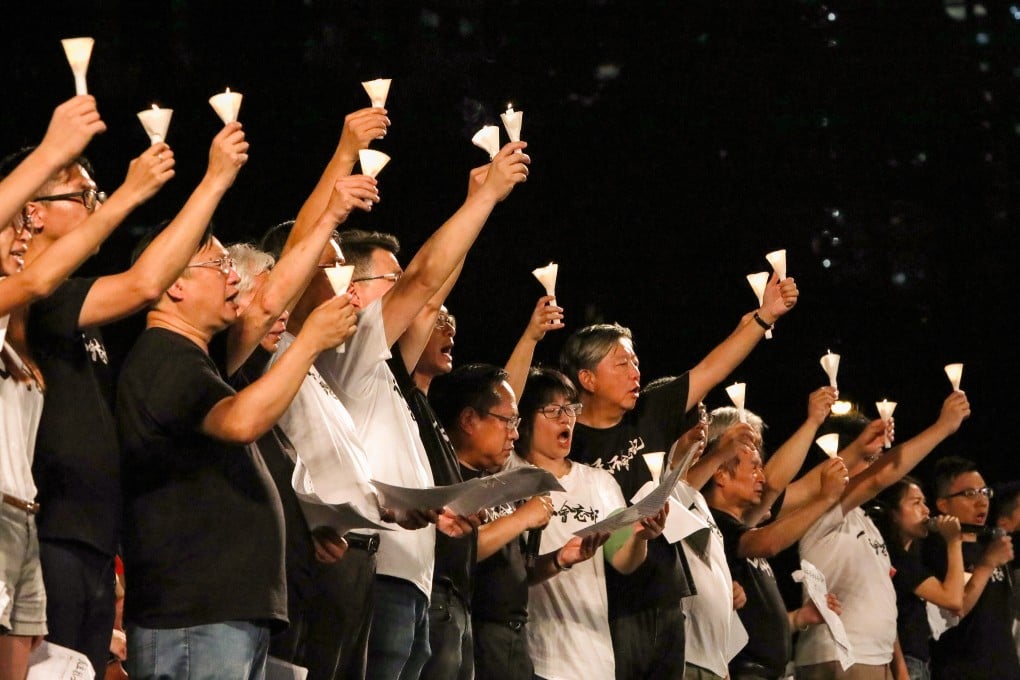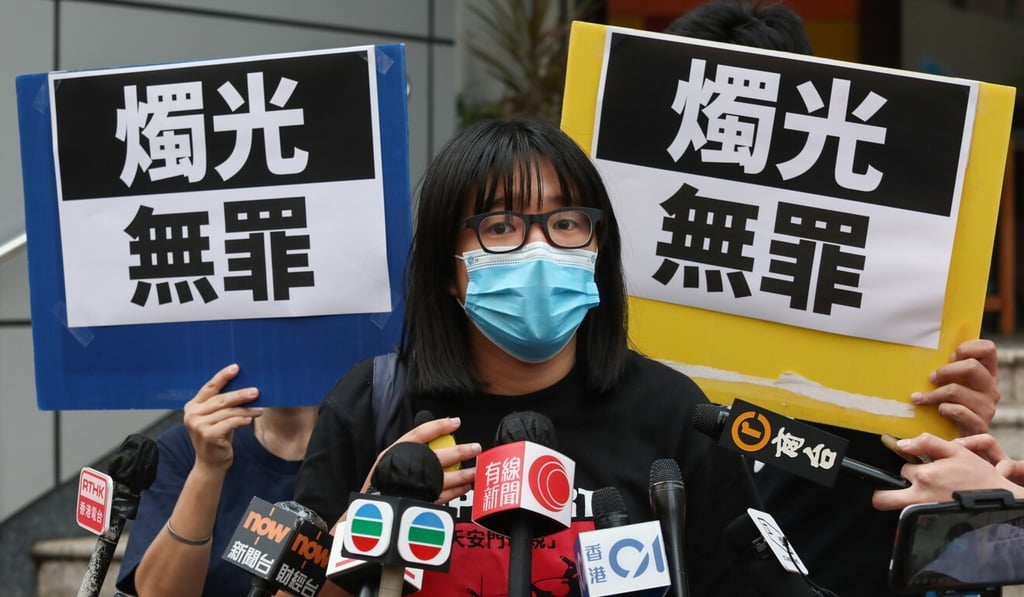Advertisement
National security law: Hong Kong group behind annual Tiananmen Square vigil under investigation for suspected collusion with foreign forces
- Police looking for links to several different overseas organisations, including ones based in United States, according to force insider
- Group’s membership list, financial reports and information about its activities demanded in letters sent to 12 members, including two in jail, source says
Reading Time:4 minutes
Why you can trust SCMP
47

National security police are investigating the main group behind Hong Kong’s annual vigil marking the 1989 Tiananmen Square crackdown for alleged collusion with foreign forces, sources have revealed.
Police have sent letters to 12 members of the Hong Kong Alliance in Support of Patriotic Democratic Movements of China – which has already decided to disband – demanding information about its membership and activities.
It marks the first time the National Security Department has exercised power granted specifically to deal with foreign organisations or their agents, the alliance being targeted by police as the agents in this case.
Advertisement

The Beijing-imposed national security law – which bans acts of secession, subversion, terrorism and collusion with foreign forces – empowers police to demand information from foreign or Taiwanese political agents about activities concerning Hong Kong.
Advertisement
“The information [sought] includes the member list, the group’s financial reports and activities information,” a senior police source said.
Advertisement
Select Voice
Select Speed
1.00x